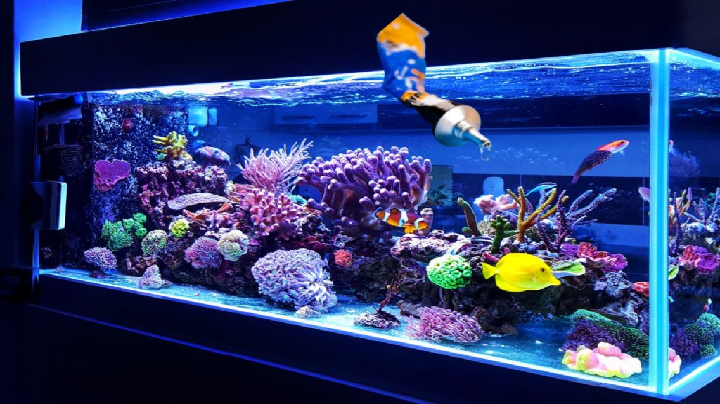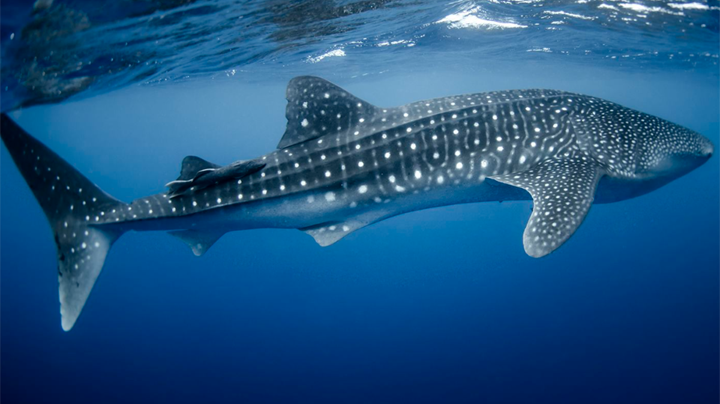It is very impotent to know for beginners that Is Super Glue Aquarium Safe? Aquarium enthusiasts often times find themselves in a bind when it comes to fixing their tanks.
Super glue is an easy and readily available option, Is Super Glue Aquarium Safe?? In short, the answer is yes. But there are a few things to keep in mind when using super glue for your aquarium repairs. This article will give you all the information you need to know about using super glue on your aquarium, including the correct way to apply it.
Is Super Glue Aquarium Safe?
Super glue is an adhesive that is used to bond two surfaces together. It is made of a substance called cyanoacrylate, which is an acrylic resin.
When it comes to repairing your aquarium, you may be wondering if super glue is safe to use. After all, it’s a powerful adhesive that can bond two surfaces together quickly.
Super glue is actually a type of plastic that polymerizes, or hardens, when it comes into contact with an accelerant. In most cases, the accelerant is air. However, when you use super glue under water, the accelerator is water.
This substance is considered to be inert, which means it does not react with other chemicals.
However, the curing process for super glue releases fumes that can be harmful to fish and other aquatic animals. Therefore, it is not recommended to use super glue on aquariums or other bodies of water.
So, is super glue aquarium safe? The short answer is yes. While it’s not recommended for permanent repairs, super glue can be used to temporarily fix cracks and leaks in your aquarium.
Just be sure to use a small amount and allow the repair to dry completely before adding water back into the tank.
Super Glue is a substance that polymerizes in 30 to 45 seconds. It is an accelerant that is used to speed up the process of adhesion. Super Glue is aquarium safe and can be used to seal leaks in tanks. When you will use it you also know that Is Super Glue Aquarium Safe?
Is Super Glue Safe Aquarium? For Plants ?
Aquariums are a popular pet for many people, but what about the plants that live inside them? Is super glue safe for aquarium plants?
Super glue is a chemical and like any other chemical, it can be dangerous if not used correctly.
Inhaling fumes from super glue can cause respiratory problems and skin contact can cause burns. If ingested, super glue can cause gastrointestinal issues like abdominal pain and diarrhea.
So, is super glue safe for aquarium plants? The short answer is no. Super glue should not be used on aquarium plants or anywhere near them. If you must use super glue, make sure to do so in a well-ventilated area and take precautions to avoid breathing in the fumes or coming into contact with the glue.

Is Super Glue Safe Aquarium? For Inhabitants ?
Aquariums are a delicate ecosystem and even the chemicals used to maintain them can be harmful to their inhabitants if not used correctly. Super glue is often used by aquarists to seal leaks in aquariums, but is it safe for the fish? Is Super Glue Aquarium Safe?
Super glue is made of cyanoacrylate, which is a toxic substance. Inhaling fumes from super glue can cause irritation to the eyes, nose, and throat. If swallowed, super glue can cause gastrointestinal blockage. While super glue is not immediately harmful to fish, repeated exposure can be damaging.
If you must use super glue in your aquarium, make sure to ventilate the area well and keep fish out of the tank for several hours until the fumes have dissipated.
Super Glue Vs. Super Glue Gel (Cyanoacrylate Vs. Ethyl Cyanoacrylate)
When it comes to choosing the best super glue, and we are in confusion that Is Super Glue Aquarium Safe? there are two main types: cyanoacrylate and ethyl cyanoacrylate. Both are effective at bonding surfaces together, but there are some key differences between the two.
Cyanoacrylate is the original super glue formula and is known for its strong bonds. It can be used on a variety of surfaces, including wood, metal, plastic, and glass. However, cyanoacrylate can be difficult to work with because it dries quickly and can cause skin irritation.
Ethyl cyanoacrylate is a newer type of super glue that contains a lower level of acidity. This makes it safer to use and less likely to cause skin irritation.
Other Super Glue Brands
When it comes to super glue, there are a few different brands to choose from. But which one is the best? And more importantly, which one is safe for use around aquariums? Let’s take a closer look at a few of the most popular brands of super glue to see how they stack up.
Is Loctite Super Glue Aquarium Safe?
Loctite Super Glue is a product that can be used for a variety of purposes, including repairing aquariums. While it is not specifically designed for use in aquariums, it can be used if necessary. There are a few things to keep in mind when using Loctite Super Glue in an aquarium.
First, Loctite Super Glue should only be used on glass or plastic surfaces. It should not be used on any other type of material, as it could potentially damage the aquarium. Second, Loctite Super Glue should only be used to repair small cracks or leaks.
It should not be used to try to fix larger problems, as this could cause more harm than good.
If used properly, Loctite Super Glue can be a safe and effective way to repair an aquarium.
Is Krazy Glue Aquarium Safe?
You may have seen memes or videos of people using Krazy Glue to fix their broken fish tanks. But is this actually safe for your fish?
Krazy Glue is made of cyanoacrylate, which is a type of plastic. When it comes in contact with water, it forms a strong bond. This makes it ideal for repairing glass, but not so much for aquariums.
If you do use Krazy Glue to repair your aquarium, make sure that you don’t get any on the inside of the tank where the fish live. The chemicals in the glue can be harmful to them.
It’s best to avoid using Krazy Glue altogether and opt for a product that’s specifically designed for aquariums.
Is Gorilla Super Glue Aquarium Safe?
Gorilla Super Glue is made with cyanoacrylate, which is an acrylic resin. This product is not water-based, so it will not dissolve in water. It is also not harmful to humans or animals if ingested. However, there are some concerns about using Gorilla Super Glue on aquariums.
The cyanoacrylate in Gorilla Super Glue can release toxic fumes when exposed to heat or flame. These fumes can be harmful to fish and other aquatic creatures. In addition, Gorilla Super Glue is not designed for use on porous surfaces like glass.
Is Uhu Super Glue Aquarium Safe?
One product that has come under scrutiny in recent years is Uhu Super Glue. This glue is often used to repair leaks in aquariums, but some people are concerned about its safety.
So, is Uhu Super Glue aquarium safe? The short answer is yes, Uhu Super Glue is safe for use in aquariums. However, there are a few things you should keep in mind when using this product.

Be sure to know
If you have an aquarium leak or crack that needs to be repaired, consider using cyanoacrylate. It is safe for both you and your fish, and it will get the job done quickly and easily.
Aquarium safe means that the product won’t harm your fish or plants when used as directed. Cyanoacrylate is a type of aquarium safe glue. It’s often used to seal leaks in aquariums and can also be used to attach decorations to the inside of your tank.
There are a few different brands of aquarium safe super glue on the market that hobbyists can recommend. Most of these glues are designed specifically for use in aquariums, making them a safe and easy option for repairs.
Aquarium safe super glues are typically made from cyanoacrylate, which is a type of acrylic resin. This material is not harmful to fish or plants and it will not change the pH of the water. When using any type of glue in an aquarium, it is important to follow the directions carefully and use only a small amount.
check the ingredients list. Some brands mentioned above make products that are not only safe for your fish, but also for your plants. Be sure to read the labels carefully to see if the product is right for your tank.
Where Can I Use Super Glue In My Aquarium?
When it comes to finding the best aquarium sealant, super glue is not the way to go. While it may seem like a good option because it’s easy to find and relatively inexpensive, super glue is actually not a good choice for use in an aquarium.
The main reason for this is that super glue is brittle and can easily break down when exposed to water. This means that it’s not going to provide a long-lasting, waterproof seal that you need in order to keep your fish safe and healthy.
Super glue is not the best option for aquarium repairs. It is brittle and will leave small gaps. Only use super glue if it is the only suitable option and you are only repairing a small area.
Superglue can be used to adhere and repair items such,
Water plants
Rocks
Rocks Live
Coral pieces
Small ornaments
Where Should I Not Use Super Glue In My Tank?
As much as super glue can be a life saver, there are some things you should never try to fix with it. Here are three things you should avoid gluing in your fish tank.
It might seem like a good idea to use super glue to fix gravel that has come loose, but it’s not worth the risk. The chemicals in super glue can be harmful to your fish and other aquatic creatures.
If you have a plant that is starting to die, do not try to save it with super glue. The chemicals will kill the plant and could potentially harm your fish.
Never attempt to use super glue on glass, whether it’s the glass of the tank or a decoration. The glue will not adhere properly and could cause the glass to shatter.
How Do I Use Super Glue In My Aquarium?
Super glue is a quick and easy way to fix leaks in your aquarium. Here’s how to use it:
- Clean the area around the leak with a sponge or cloth.
- Apply super glue to the outside of the aquarium where the leak is.
- Press the two surfaces together and hold for 60 seconds.
- Wipe away any excess glue with a damp cloth.
- Fill your aquarium with water and check for leaks.
- If there are no leaks, add your fish and plants.
Tips to Use Super Glue in Aquariums
Here are some advices from our experience that may be useful.
Apply the gel version
Applying the gel version of super glue to an aquarium is one of the best ways to make sure it stays secure.
Use only a little
A little goes a long way with super glue. You don’t need to use a lot to get the job done.
Apply it to land-based things only
Apply it to land-based things only
Super glue can be applied to rocks, driftwood, and other decorations that are not submerged in water.
Allow it to dry
Apply the glue to the edges of the leak and allow it to dry for a few minutes. Once the glue is dry, put some water into the tank and check for leaks again. If there are any, repeat steps 1-3 until the leak is fixed.
Conclusion
In conclusion, while super glue may be aquarium safe, it is not the best choice for repairing your fish tank. There are many other products on the market that are specifically designed for aquariums and will provide a stronger, more durable repair.
Generally speaking, super glue is safe for use in aquariums.
However, it is important to exercise caution when using any type of adhesive in an aquatic environment. This is because some adhesives can release toxins into the water that can harm or even kill fish and other aquatic creatures.
If you do decide to use super glue to bond something in your aquarium, be sure to use a product that is specifically designed for use in aquariums.
These products are usually labeled as being safe for use in aquatic environments and will not release toxins into the water.
Super Glue is an adhesive that can be used to fix things like small decorations, aquatic plants, rocks, live rocks, and coral frags.
It is important to note that Super Glue is not aquarium safe and should not be used in an aquarium.
You Also Read More







